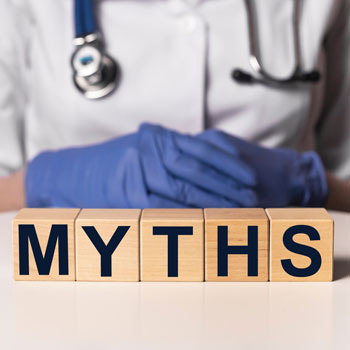Finding financial well-being
Among many competing priorities, early career physicians often don't know where to begin with personal finance.
Financial planning doesn't come naturally to all physicians, especially those just starting out. About half of early career physicians said their retirement savings were behind where they would like them to be in the 2021 ACP Physicians' Financial Preparedness Report, which surveyed nearly 500 physicians with 0 to 16 years in practice.
Physicians in the survey reported wishing they had done more financial planning earlier in their careers, even during training. One said, “I wish I had been informed about building and diversifying a financial portfolio,” while another said, “I wish I had explored loan repayment programs, particularly those targeted for primary care.”
While two-thirds of early career physicians reported that they planned to continue practicing in their current way for the next three years, they expected significantly more personal and professional changes than more experienced physicians did, according to the report. An average of 22% planned to change employers, 24% planned to have children, and 12% planned to move to another state.
With all these competing priorities, early career physicians often don't know where to begin with personal finance, said Amy K. Holbrook, MD, FACP, who is associate program director of the internal medicine residency and director of medical student education at Abbott Northwestern in Minneapolis and a member of ACP's Council of Early Career Physicians.
“You go to school forever, and then you come out and you start making great money as an attending, and you have no idea what to do with it necessarily,” she said. “And there's a lot of really good uses for your money in that transitioning time when you're starting out as an attending, and you can really change your trajectory of where you're headed based on those decisions.”
But physicians typically are not taught about finances in school, added Disha C. Spath, MD, FACP, an internal medicine physician practicing in New York and Vermont and founder and CEO of The Frugal Physician. “There's simply not enough time. There's so much to learn about medicine, and a lot of the times, financial education gets put on the back burner,” she said.
This is unfortunate because going to medical school is like “trying to drink out of a firehose” of information, whereas the basics of personal finance are easily consumable, said internal medicine physician Jordan Grumet, MD, who is host of the Earn & Invest podcast and author of “Taking Stock: A Hospice Doctor's Advice on Financial Independence, Building Wealth, and Living a Regret-Free Life.”
This is where ACP's Financial Well-being Program can help. Launched in 2022, the program is designed to help members manage their finances with tools and resources on financial planning, debt repayment, budgeting, saving, tax strategies, and more.
Financial well-being means using your money to support whom you want to be and to build happiness, according to Dr. Grumet. “I think very few people actually do that. They think about either some net-worth number or some goal, or they use it for very short-term joy, whether it be a quick vacation or buying something that really means something to them,” he said. “But the truth of the matter is, financial wellness is about using money as a tool to do the things you want in life.”
A key to financial well-being is setting goals for the future, added Candace Sprott, MD, MBA, FACP, an internal medicine and pediatrics physician practicing in California and a member of ACP's Council of Early Career Physicians.
“I think knowledge about one's financial standing serves to empower an early career physician to make decisions that are aligned with their future goals and dreams; without that knowledge, we can have our present reality dictated by our current earning power or debt burden,” she said.
Early career physicians have specific challenges to focusing on finance. One of the biggest barriers is time.
“It can feel very overwhelming. When you're taking care of your patients during the day and you come home at the end of the day, and then maybe you do your second job, taking care of the kids, you're exhausted,” Dr. Sprott said during an ACP webinar introducing ACP's Financial Well-being Program.
Another challenge is that early career physicians have more student loan debt than most other professionals coming out of college, added Christopher Horvath, managing director of Chicago-based Taiber Kosmala & Associates (TKA), an institutional investment consulting firm that ACP uses. Those are “painful, painful numbers,” Dr. Sprott said. “And I think it can be difficult to defer some of those luxuries we think of, maybe a new car or a nice home, once you're done with training, because you've done a lot of work.”
For early career physicians who want to get started on the right path, ACP is the best place to start, according to Joseph Taiber, a financial analyst and cofounder of TKA. “The ACP website resources that are being constructed right now are phenomenal. They're comprehensive, and that's definitely where I'd go to,” he said during the webinar.
One way to get your financial plan started is by forming a team, Mr. Taiber added. “Selecting a tax professional … working with an insurance professional, working with a financial planning professional that can help you with budgeting and saving for your kids' college and debt management and these concepts, and viewing that team as your team, your personal board of directors, I think is a great way just to conceptualize how to start thinking about what seems like an overwhelming concept and basket of things to do,” he said.
But not everyone needs a financial adviser. Plenty of people enjoy digging into taxes, investments, cash flow, and all things financial planning and prefer to take a do-it-yourself (DIY) approach, noted Mr. Horvath. “If you do enjoy that, then I think it can be really rewarding, and there's nobody that's going to know your financial picture better than you,” he said.
To figure out if a DIY approach is for you, Mr. Horvath recommended asking yourself the following question: Do you have the knowledge, the time, and the interest to sit down and map out your financial future? “If the answer is no to any of those three parts of that question, then I recommend starting to assemble that team and that personal board of directors,” he said.
Even Dr. Sprott, who has the knowledge (she earned her business degree during medical school), said she lacks the time and the interest to DIY her finances at this stage in her career, about 10 years into practice.
“I think you lose a lot of time when you don't get out of your own way and allow your team to work for you,” she said. “So I think, for all of my early career physicians out there, this is OK to give up control over—as long as you're still coordinating and staying engaged.”





